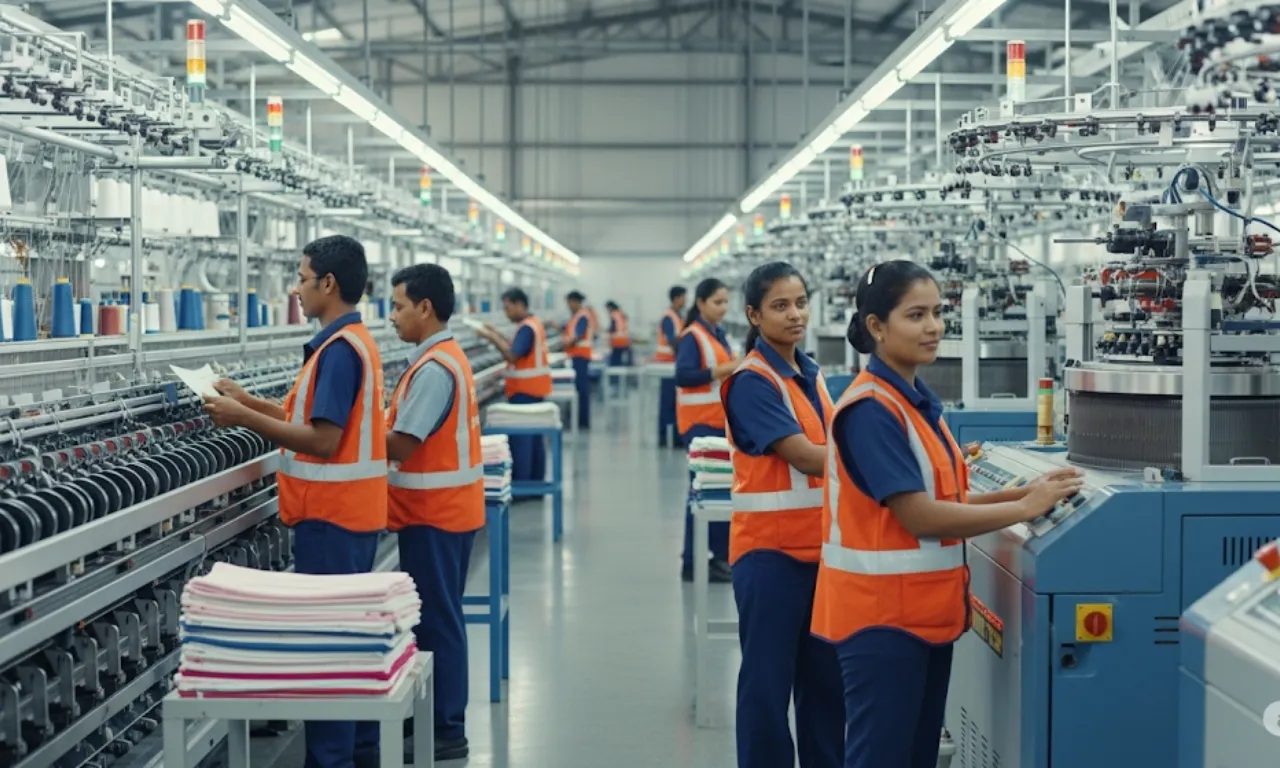- PM MITRA Scheme launches seven integrated textile parks across India with a Rs. 4,445 crore investment.
- Scheme aims to attract Rs. 70,000 crore investment and create nearly 20 lakh jobs by 2027-28.
- Complementary schemes like Samarth for skill development and National Technical Textiles Mission boosting textile exports.
PM MITRA SCHEME (PM Mega Integrated Textile Region and Apparel Scheme) is ready to change textile manufacturing in India by starting seven dedicated textile parks. This effort, along with government schemes like Samarth and the National Technical Textiles Mission, is made to bring in investments, create jobs, and improve India’s position in the global textile market. If you follow updates on Indian government textile schemes, this article gives detailed information about locations, investments, job targets, and export support under PM MITRA.
PM MITRA Scheme: Boosting Textile Growth in India
PM MITRA Scheme plans to change India’s textile industry with mega integrated textile parks. These parks will combine modern facilities and offer a business-friendly environment, attracting big investments and supporting advanced textile manufacturing, processing, and apparel production. This complete plan is expected to create many jobs and speed up growth in the textile sector across several states.
Also Read – Complete PM-KISAN Scheme Eligibility List for Indian Farmers
Locations and Investment Details of PM MITRA Parks
Seven PM MITRA parks have been set in important locations to cover different regions across India. These are:
- Tamil Nadu (Virudhnagar)
- Telangana (Warangal)
- Gujarat (Navasari)
- Karnataka (Kalaburagi)
- Madhya Pradesh (Dhar)
- Uttar Pradesh (Lucknow)
- Maharashtra (Amravati)
The total investment planned for these parks is Rs. 4,445 crore until 2027-28. The scheme aims to bring in an extra Rs. 70,000 crore in investments from both Indian and international companies. When finished, it is expected to create about 20 lakh direct and indirect jobs, boosting local economies and the national textile industry.
Skill Development with the Samarth Scheme
Along with building infrastructure, the Government is focusing on helping workers improve their skills through training programs under the Samarth Scheme (Scheme for Capacity Building in Textiles Sector). Carried out across India, Samarth offers training based on demand and aims to help people find jobs, covering the entire textile value chain except spinning and weaving units.
For example, in Haryana, 26 partners run 80 training centres focused on beginner and skill-upgrading courses for textile workers. This scheme makes sure there is a skilled workforce ready to meet the needs of new textile parks and the changing industry demands, helping sustainable growth and keeping jobs.
Government Support for Textile Exports and Promotion
Understanding the value of global markets, the government provides financial support to Export Promotion Councils and trade groups involved in textile and garment exports. This support includes organizing and taking part in trade fairs, exhibitions, and buyer-seller meetings at national and international levels. These efforts improve export chances, build industry connections, and help Indian textiles compete worldwide.
National Technical Textiles Mission (NTTM) and Its Effects
National Technical Textiles Mission (NTTM) adds to these efforts with a special focus on technical textiles, a fast-growing segment important for innovation and specialized uses. Running from 2020-21 to 2025-26, NTTM has a budget of Rs. 1,480 crore.
The mission aims to improve research, production, and market demand for technical textiles across India, including states like Haryana. By doing this, it helps the industry develop new materials and increase exports. Together, NTTM and PM MITRA build a strong system for the future of Indian textiles.
Information provided by Shri Pabitra Margherita, Minister of State for Textiles, in a Rajya Sabha written reply on 1 August 2025.

